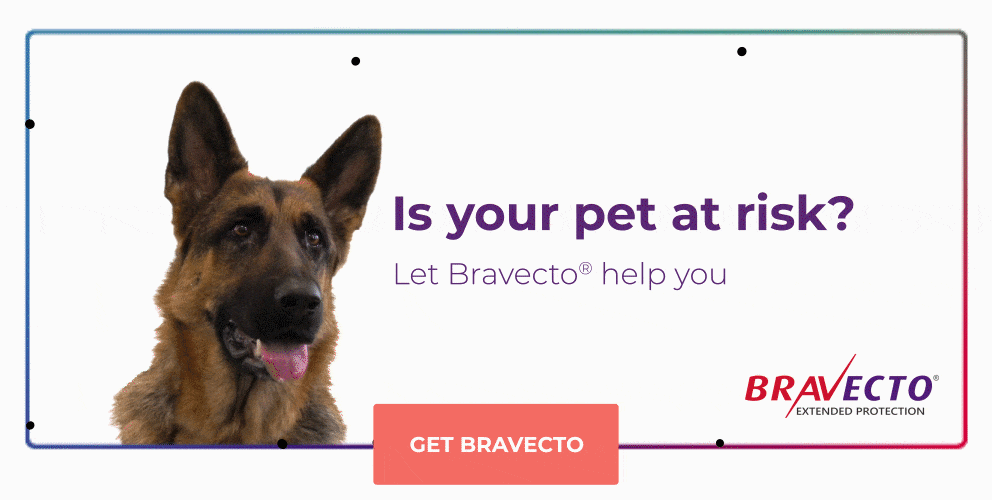Vaccines 101: What Dog Vaccinations Really Do For Your Dog (And You)
HEALTH & PROTECTION
2 Dec, 2019
READ 7 minutes

The minute you bring a dog into your home you begin to understand just how special your four-legged friend really is: your dog doesn’t judge or hold a grudge; and more often than not, she’s pretty happy to follow your lead, wherever that may be. Naturally, you want to do everything in your power to help your dog stay healthy and protected throughout life.
One of the best things you can do is take the time to understand the importance of preventative health measures available, including vaccination.
Dog vaccines are like armour for your dog. They help the body muster the strength and ability to fight disease-causing bacteria or viruses that your dog may encounter at any age. It’s important to protect your dog. Your veterinarian will explain which vaccines are essential, along with which ones are required by law in your country. Vaccination is highly successful at controlling debilitating and often deadly diseases, so much so that in many cases that the diseases no longer appear to be a threat. Infection is always a threat to a dog that is not vaccinated. Vaccination protects every member of your family from the threat of serious diseases, along with all of the other animals with whom your dog socialises.
CORE DOG VACCINES
Veterinarians agree that your pet should be protected against diseases that are most common, highly contagious, and cause serious illness. The vaccines that protect against these diseases are considered core vaccines. These include canine distemper, infectious canine hepatitis, canine parvovirus, and rabies. Other vaccinations may be recommended, based on your veterinarian’s evaluation of the risks posed by such factors as your dog’s particular environment and lifestyle. These are referred to as non-core vaccines.
CANINE DISTEMPER
Need: Core
Canine distemper is a highly contagious viral infection mainly spread by discharge from the nose and eyes of infected dogs. This virus affects a dog’s gastrointestinal, respiratory and often also its central nervous system causing neurological signs such as fits. Vaccination is successful in preventing distemper. There is no specific antiviral treatment available for dogs that become ill from this often-fatal disease.
CANINE PARVOVIRUS DISEASE
Need: Core
Canine Parvovirus is a contagious viral disease that affects unvaccinated puppies and adult dogs through direct or indirect contact with the feces of an infected dog. The virus is shed in the feces. This virus is highly resistant to many disinfectants and may remain in the environment for several months which makes it easily transmittable. The infection spreads through the bloodstream and attacks areas such as the bone marrow and the small intestine. Some dogs show no signs of infection, while others can be very seriously affected with complete loss of appetite, severe vomiting, and bloody diarrhea. Although there is no specific treatment, dogs can recover with intensive nursing and veterinary care. Vaccination remains the best means of prevention.

INFECTIOUS CANINE HEPATITIS
Need: Core
Infectious canine hepatitis (ICH) is a highly contagious disease caused by canine adenovirus type 1 which can range from mild to fatal. This disease is transmitted among dogs by contact with secretions, such as saliva, infected urine, or feces. The signs are similar to those of the early stages of distemper. Signs vary a slight fever and congestion to severe depression, marked leukopenia, and coagulation disorders. The disease causes liver failure and eye damage. In recent years, the disease has become uncommon in areas where routine vaccination is done, but periodic outbreaks, which may reflect maintenance of the disease in wild and feral hosts, reinforce the need for continued vaccination.

RABIES
Need: Core (in countries where rabies is present); Required by law in some countries
Rabies is a disease that is both 100% fatal and 100% preventable. It is a virus that infects the central nervous system of all mammals. Once infected, the animal (such as jackals, foxes, meerkats, and bats) begins to behave erratically, for instance, nocturnal animals become active during the day, others become unusually aggressive, and they spread the disease through bites or scratches on the skin. The rabies vaccine for dogs provides added protection. Rabies vaccination is required by law for dogs in many areas. For many countries, you will need to provide vaccination records when boarding or traveling with your dog. People can also be affected by Rabies by being bitten or even licked, by a rapid animal. The disease is 100% fatal in humans too.

LEPTOSPIROSIS
Need: Recommended in dogs with access to outdoor areas frequented by wildlife, especially rodents.
Leptospirosis is a bacterial infection that attacks the kidneys, lungs, and liver of infected dogs. The infection is shed in the urine of various wildlife species, especially rodents who are referred to as ‘reservoir hosts’ for leptospirosis. Dogs contract the disease by coming into contact, either directly or indirectly, with this infected urine, mainly by drinking from or swimming in contaminated water sources (streams, rivers, swamps and artificial lakes). Following infection, leptospire travels through the bloodstream and end up in various tissues and organs. Signs of disease vary from mild to severe, which can result in liver or in kidney failure and sometimes hemorrhagic lung disease. There are a large number of different pathogenic serogroups of leptospire but most canine diseases are caused by strains from four serogroups; vaccination is available and recommended to protect against the strains from these four different serogroups.

NON-ESSENTIAL DOG VACCINES
CANINE TRACHEOBRONCHITIS (KENNEL COUGH)
Need: Non-Core
This highly contagious condition, also referred to as upper respiratory disease or kennel cough, is spread through coughing and sneezing. Several different viral and bacterial organisms can cause this disease. In unvaccinated dogs, it is primarily caused by Parainfluenza. In vaccinated dogs, Bordetella is more common. Although infected dogs can recover on their own if there is no secondary infection or damage to the lungs, they may be quite ill for some weeks and sometimes develop more severe diseases such as pneumonia as a result. Kennel cough spreads quickly among dogs in close quarters in kennels, dog parks or while traveling. Proof of vaccination is often necessary for places where dogs come in contact with each other, such as daycares or kennels. Although these are considered high-risk places for this disease it’s also perfectly possible for any ‘social’ dog to pick up disease just from interactions with other dogs during their normal day-to-day activities such as walks in the park.
Hopefully, we’ve answered some of your questions about what dog vaccines should be considered, by outlining what types of diseases pose the greatest risk to your dog throughout life. It’s essential to discuss vaccination with your veterinarian. Be sure to share your and your dog’s lifestyle habits with your vet so that you can plan a course of prevention that will enable your journey together to be a safe and happy one.
RELATED POSTS
-

Learn about canine babesiosis, a tick-borne disease that affects dogs worldwide. Discover its symptoms, treatments, and how to prevent it.
-

Explore how diabetes impacts cats, its signs, risk factors, and effective management through medication and diet for a healthier feline life.
-

Diabetes affects an estimated 1 in 300 dogs, diabetes is more common in middle-aged and older dogs (4-14 years of age), it can be diagnosed in dogs of any age, including young dogs. Read more.
-

Ever wonder how your dog experiences the world? Why he or she sniffs everything, everywhere? Read more and find out








